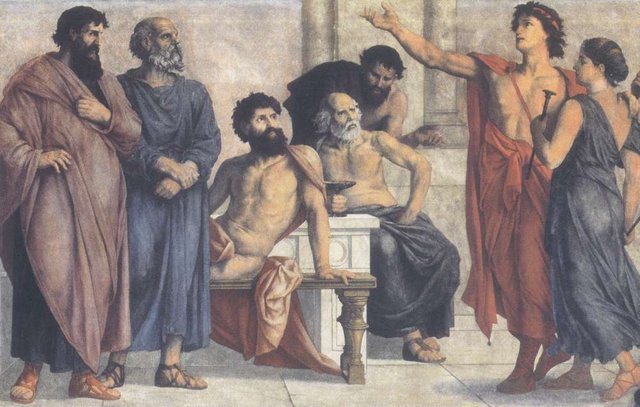On philosophy, chatting and thinking

I remember that the first philosophical text I read was Plato's Theaetetus. I came across it by chance and immediately began to read a few pages in the middle of the book. It completely caught me, so I decided to read it and from start to finish I was totally hooked and amazed. I always considered myself a very rational person, but this was on another level. The Theaetetus is one of Plato's best dialogues, and one of the best and most complete philosophical works in all of history. It's smart, but very easy to understand if you pay attention, plus it's very easy to read. So naturally I felt an inclination towards philosophy and started reading more about it.
This dialogue made me understand at once what philosophy is all about and what philosophizing is. In the same dialogue, Socrates, the main interlocutor, defines thinking as "a discourse that the soul addresses itself" and as "chatting with oneself". No fancy definitions, just plainly that. Many people have some objections to that definition, such as that they think with images, etc., but I think that in any case the original meaning remains, because it is still a conversation with oneself anyway, just not necessarily with words. I keep that definition because that's how I think. And if thinking is simply talking to yourself, it makes sense that Plato's writings are in the form of dialogue, because it is the most similar to that. In fact, not only Plato, but many of the early philosophers wrote in dialogues. Aristotle too, only his dialogues were lost. It is likely that all of them wrote dialogues based on Socrates' objections to scripture, namely that since writing was a very poor form of conversation compared to speaking directly to people, it was not worth writing but only focusing on transmitting the message orally. For that reason Socrates wrote nothing. In contrast, those who did write did so as dialogues to compensate for the failures of written communication, focusing so much on the staging until reaching the point where Plato's dialogues come to present an extraordinary liveliness. I am sure that if they lived in the present, perhaps they would not opt so much for the written word but would rather use audiovisual material to convey their message. Although they would continue to lean more towards direct and personal conversation, because it has always been the purest way of transmitting knowledge from one perception to another, and therefore, it has been the philosopher's preferred form of communication.
What I mean by this is that philosophizing is simply the art of conversation, nothing more. Philosophizing is just talking about a topic long enough to find an answer. When you read Plato, you realize that philosophy is not something that is necessarily done through solitary meditations, in a dark room, but is also something that is done with other people, in public spaces. In this sense I believe that philosophy can in many respects resemble psychology.
Of course not every conversation is necessarily philosophical, you can talk about the weather and that will get you nowhere, in the same way that thinking is not necessarily good, because your head can be filled with pure futile thoughts. In both cases, philosophizing are only those conversations that seek to make us, in one way or another, wiser, and that seek to bring us closer to the truth. For the rest, nothing prevents that very often, philosophizing, thinking and talking are the same thing, and that meaningful conversation is many times the way to solve our biggest questions.
Image Source: 1

Thanks for your article. Unfortunately, I never read Plato. It is funny that you are emphasising the dialogue and the spoken word in these strange times of social distancing (I guess they mean bodily distancing). Aren't we all glued to the screens these days as the last possibility to communicate some ideas? I really miss old friends and our creative and inspiring exchange of thoughts. It is a total other quality.
Yes, it's a bit ironic maybe.
Yeah. Right. Although it is never the same. You cannot satisfactorily replace face-to-face conversation with digital communication. Although it helps something, I don't want to underestimate either. I once read that technology usually causes this effect, it brings us closer to the most distant people, but it distances us from the closest people.
Thank you for stopping by! Cheers!